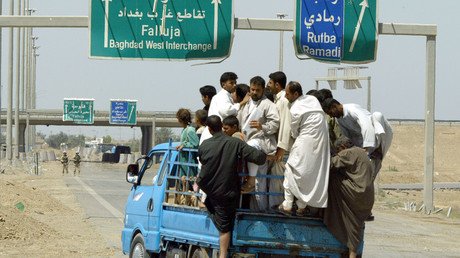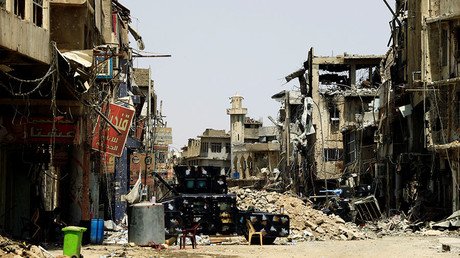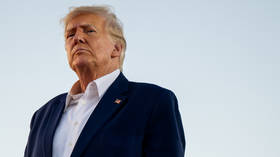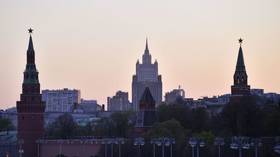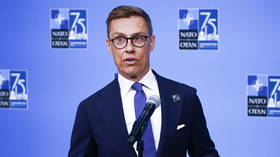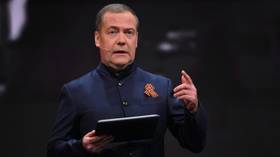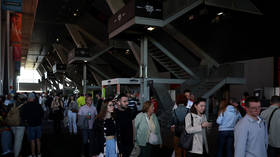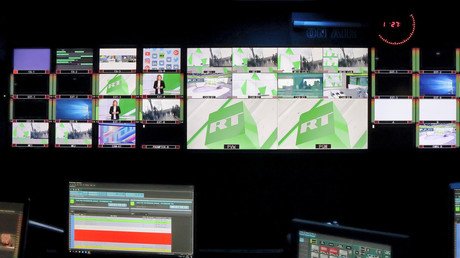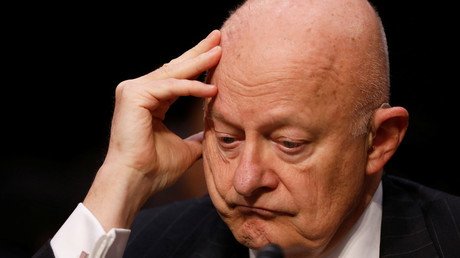Unexploded IEDs & white phosphorus: 15 years after US troops came, war still everywhere in Fallujah
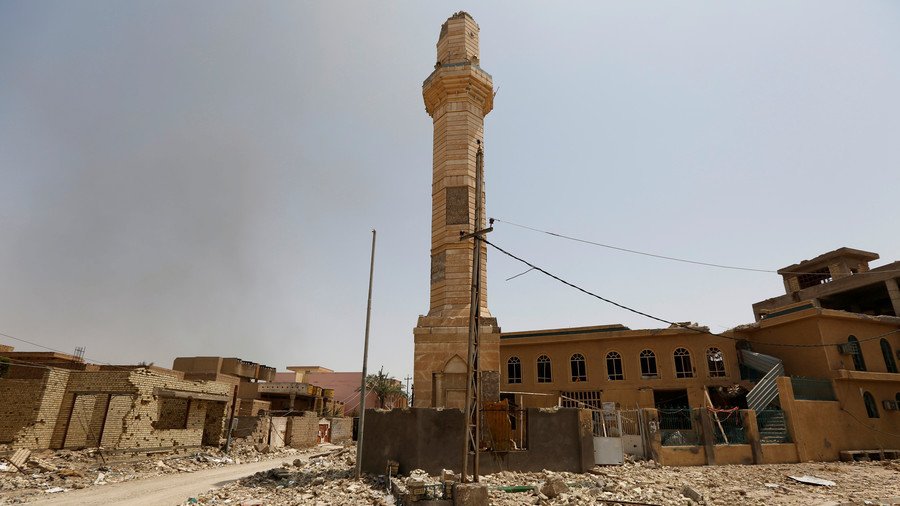
Ruptly traveled to Fallujah, a city that has become synonymous with every upheaval that has struck Iraq since 2003, to find a populace psychologically and physically scarred by the fallout from the ill-judged Western intervention.
Spared during the initial offensive that toppled Saddam Hussein, the city, 65 kilometers west of Baghdad, became the focal point of the subsequent anti-American insurgency, and was bombarded and captured in the bloodiest battles for US troops since Vietnam. It later became a hothouse of radical Islamism, and was one of the first major cities captured by Islamic State (IS, formerly ISIS) in January 2014. It was won back by the Iraqi Army two years later in yet another devastating assault on a city that was once home to 300,000 but now houses about half that number.
“The real Fallujah was taken from its people, it was taken many times. It was given a bad name in the media. It was presented as a place that was creating terrorism, and even exporting terrorism,” Sheikh Mohamed Nouri, a leading local cleric from the Rabat al-Mohammadi council, told Ruptly, RT’s sister video news agency.
READ MORE: Igniting Fallujah: US killings of protesters in 2003 that signaled start of insurgency
“But the real Fallujah is not like that, the real Fallujah is known through its libraries, it is known through the generosity of its people, their kindness, and their good roots. Fallujah in its truth loves peace, it doesn’t love war.”
But the thought of peace seems utopian in a city where major infrastructure, including the main hospital, remains in ruins, and where every incoming vehicle has to crawl through military checkpoints even for the most routine delivery.
While the central government has nominally taken control and restored order, carcasses of houses still conceal un-erased Islamic State slogans, human remains, and most dangerously, unexploded IEDs planted by militants who themselves died years ago.
“We came back from the camp to Fallujah, they told us that Fallujah and its suburbs are all clean from IEDs [Improvised explosive devices]. We came back on the road and came back to clean. As we were cleaning the house, an IED went off and killed my sister and my sister-in-law,” Faisal Ibrahim, a local resident, tells the crew.
“The area is destroyed, it is not a place anyone would want to come back to, and we are the only ones with this house. We haven’t see anyone in charge pass by here and ask about us or offer condolences… Soldiers come here, explode two, three bombs and they leave.”
Many of the victims are too young to even remember most of the fighting where they now live, but are not free from its impact.
Locals believe that the skyrocketing rate of birth deformities is connected to the contentious use of white phosphorus and depleted uranium shells by American troops, though the Pentagon continues to deny a direct link.
One child born in the aftermath of the invasion is seven-year-old Fatima Shehab, after her mother had several miscarriages. She has severe limb deformities, including fingerless, stump-like arms that make her fully reliant on her relatives.
“I have made a study based on a sample. We analyzed them in certified German labs, which are unbiased and have nothing to do with any political party. They found uranium, mercury and other pollutants,” says Dr. Samira al-Ani, the head of the specially-assembled local Council of Birth Defects.
There is some solace for Fatima, that in a city where many suffered pain, loss, or disfigurement, others understand her, and the straight-A student meets understanding from her teachers, who give her a chance to dream.
“My wish is to do well enough in my studies to become a doctor, so I can fix my hands,” she says.
